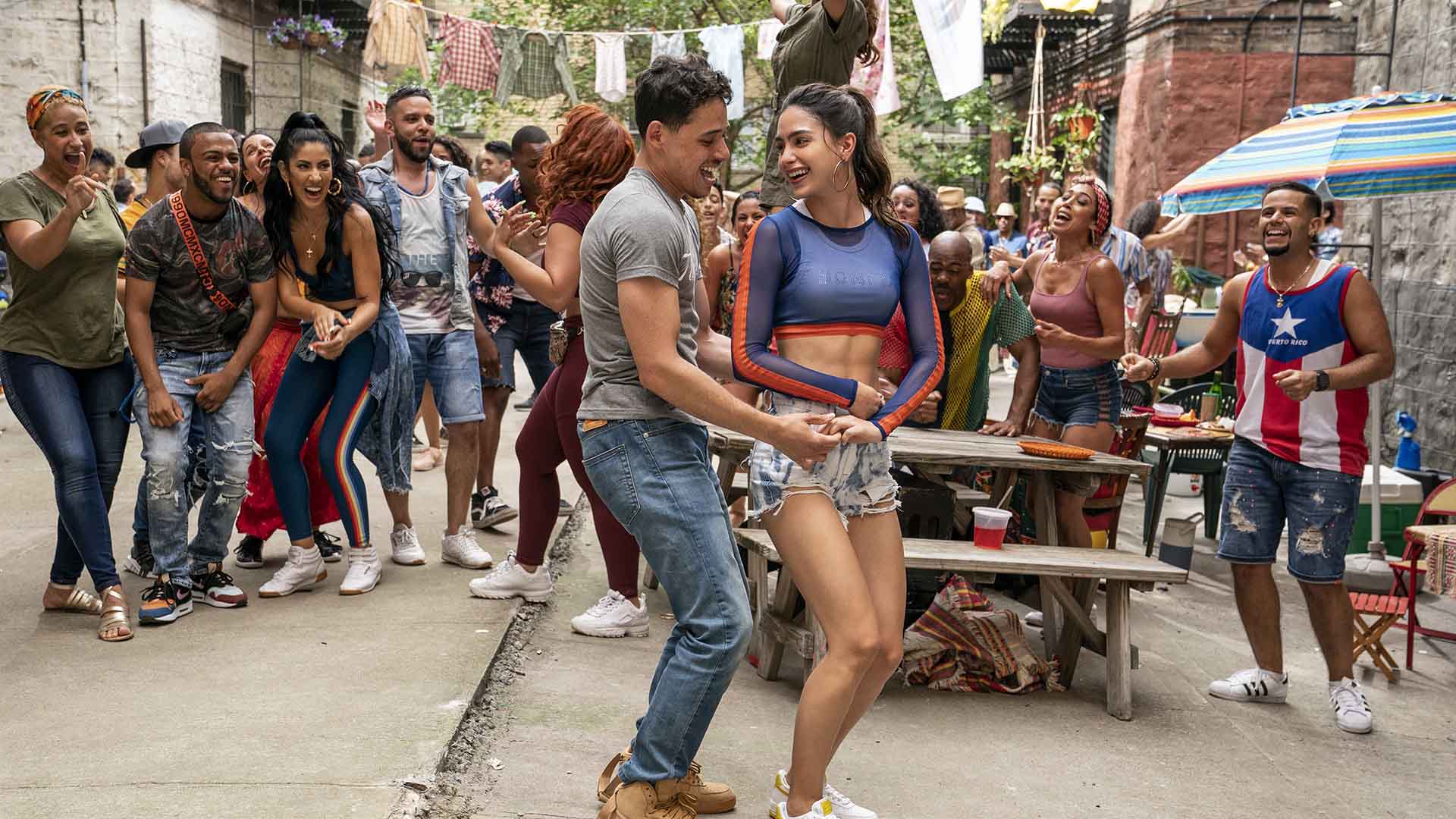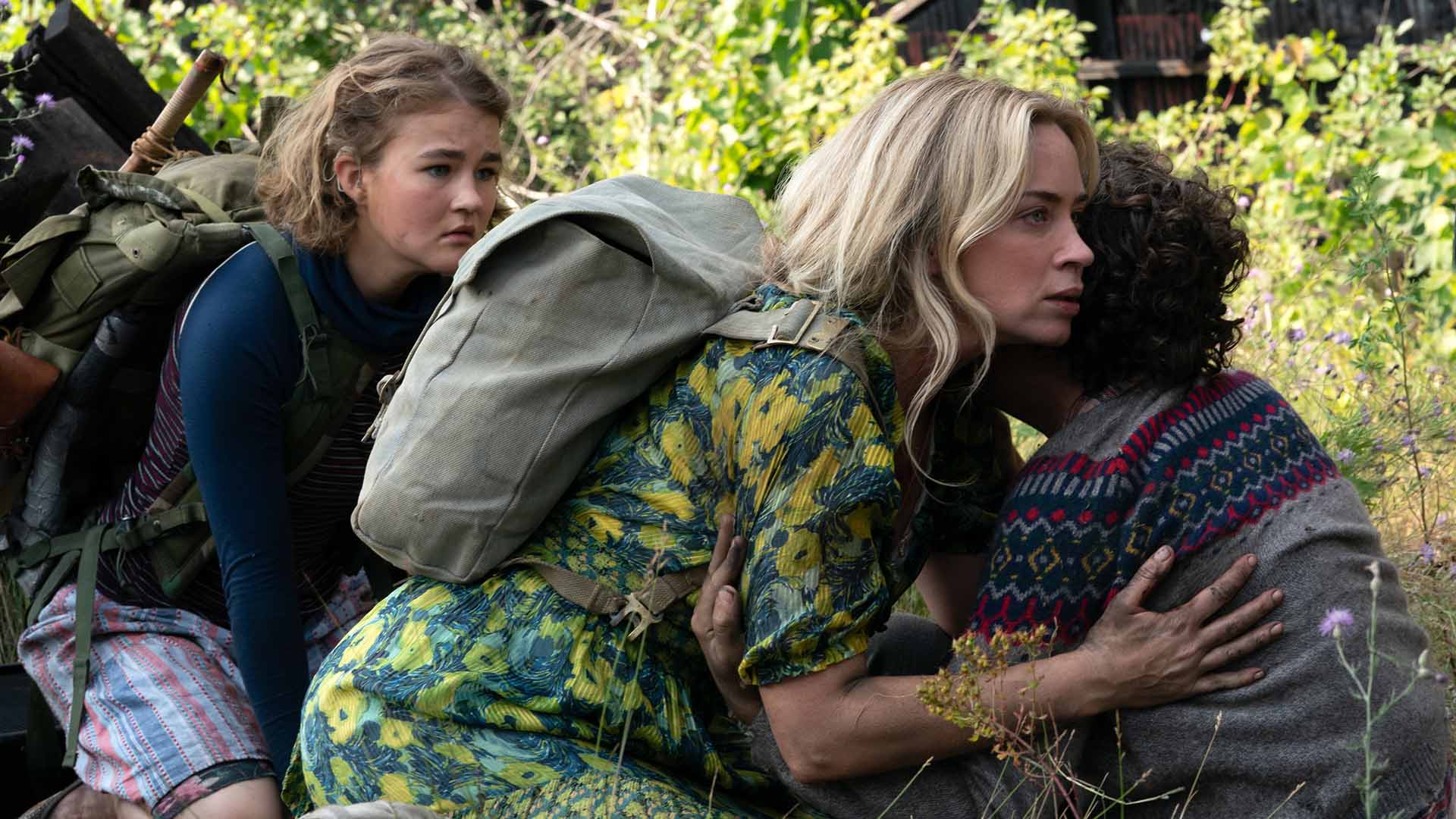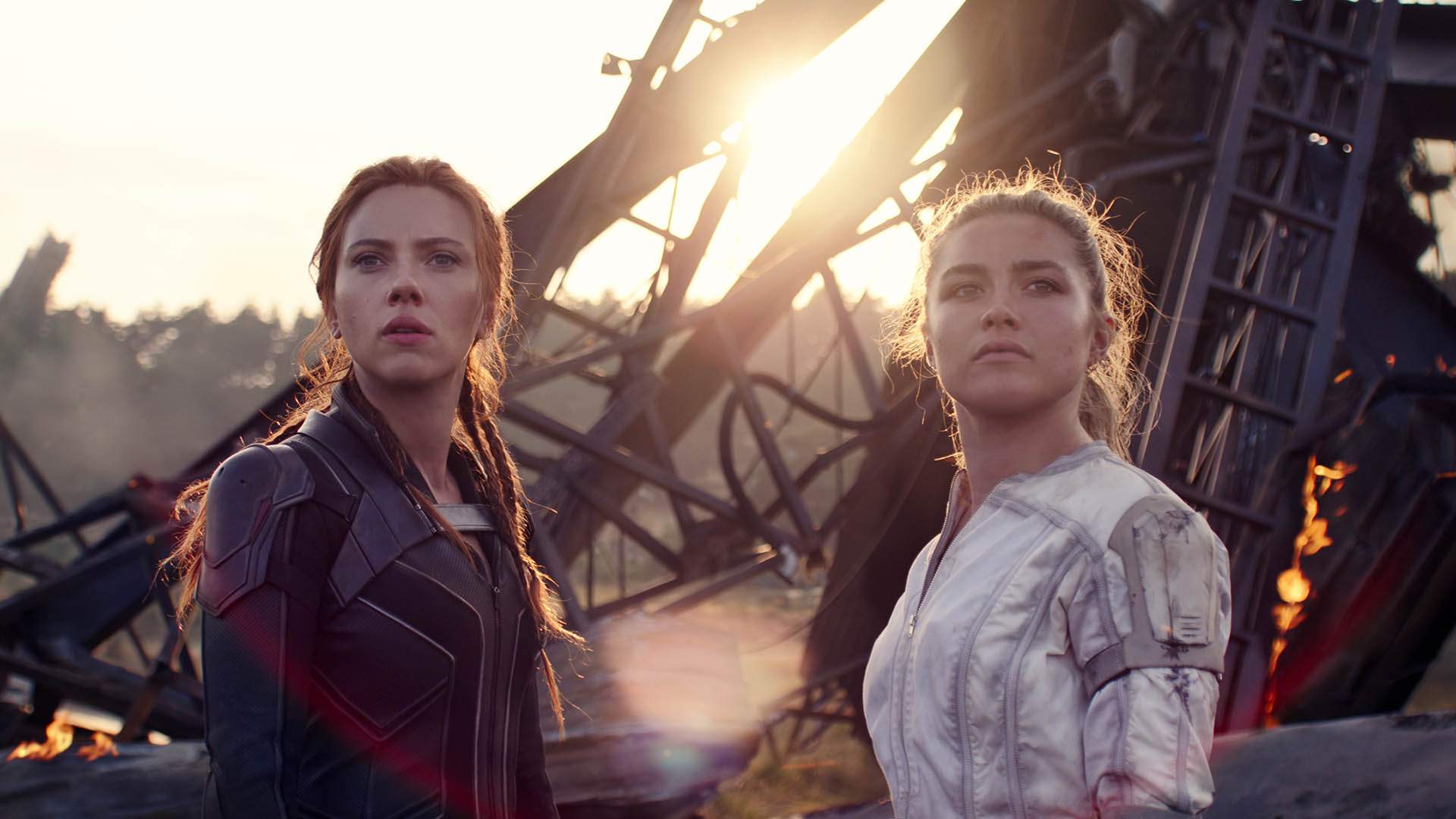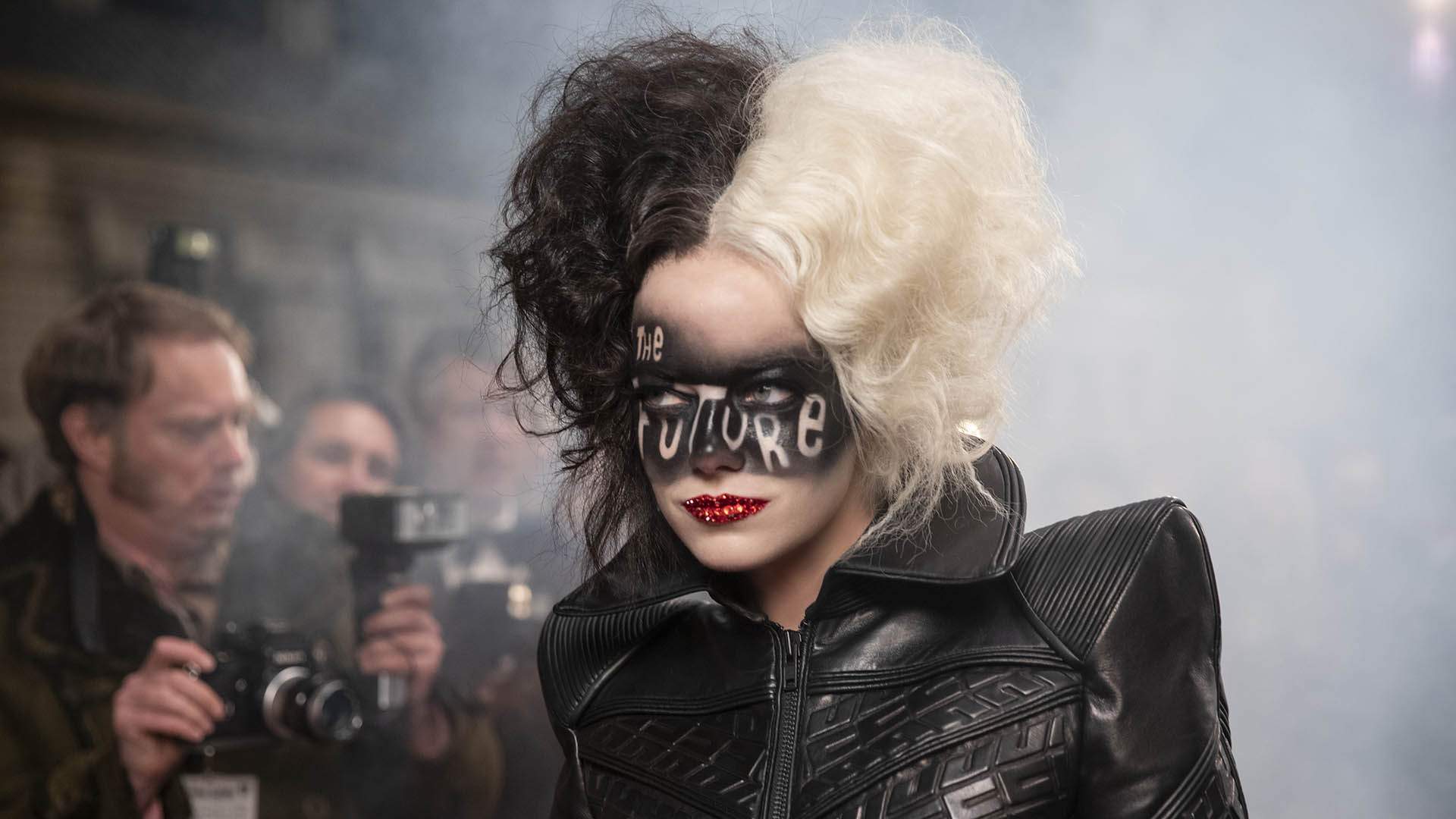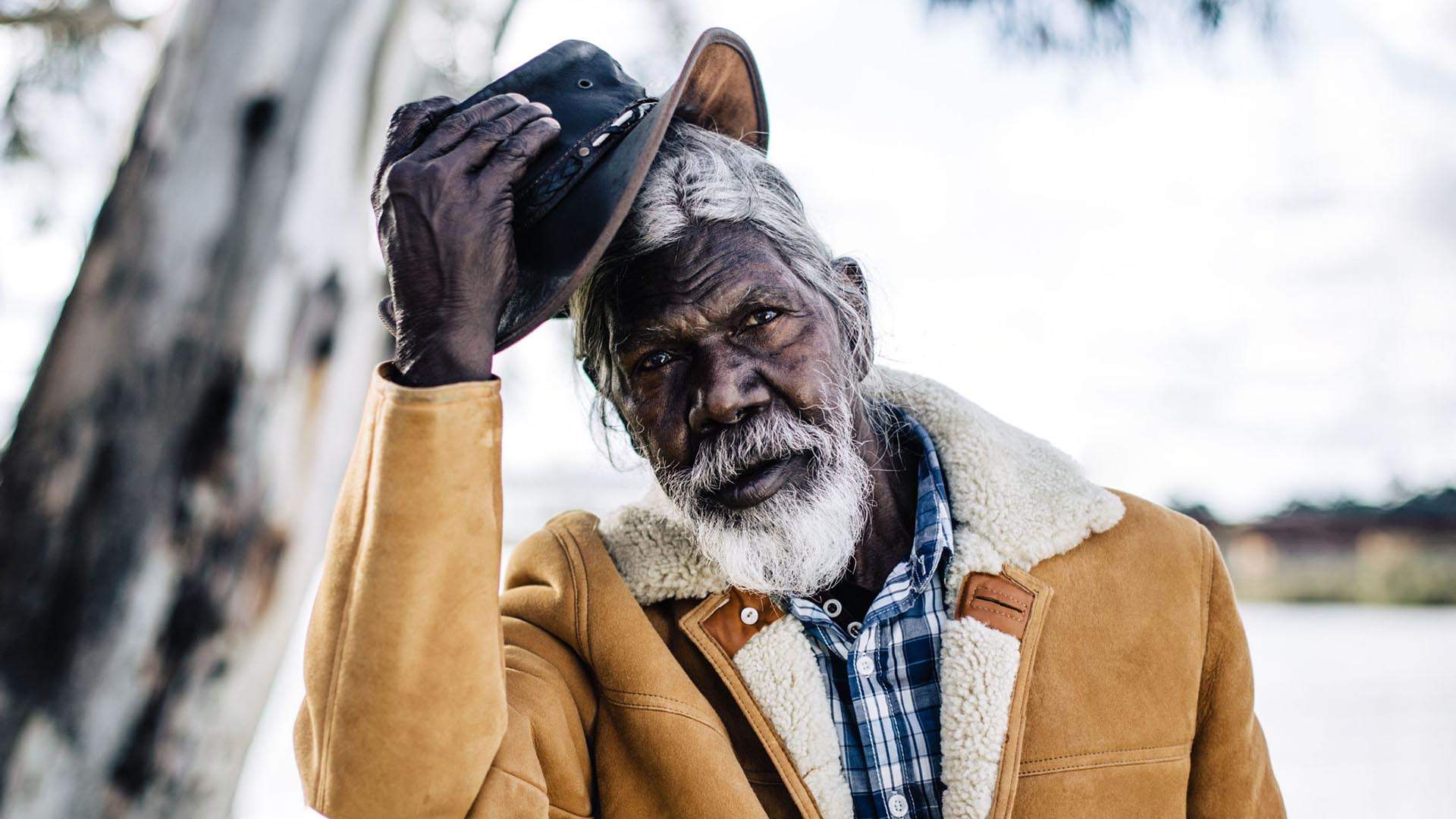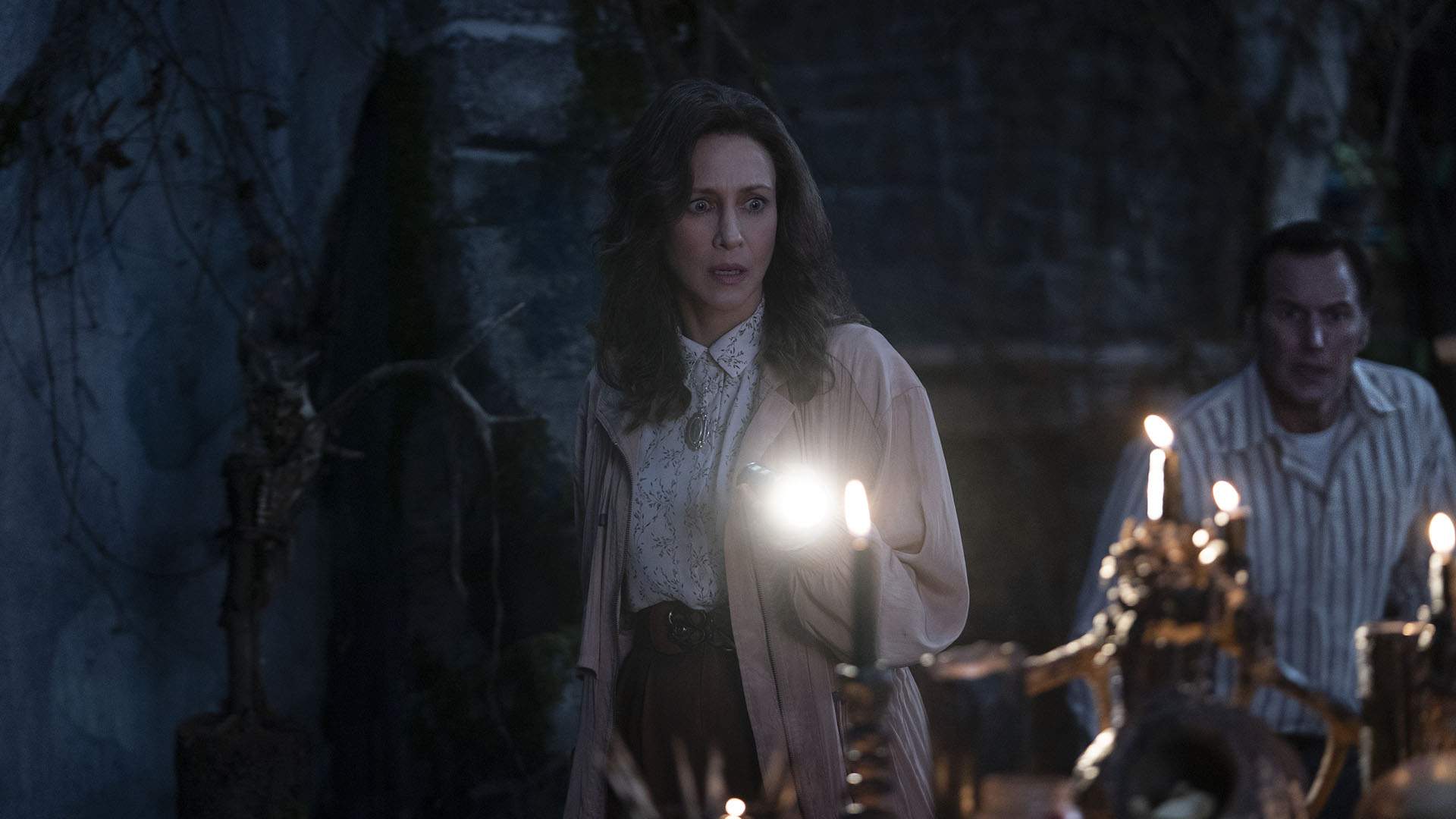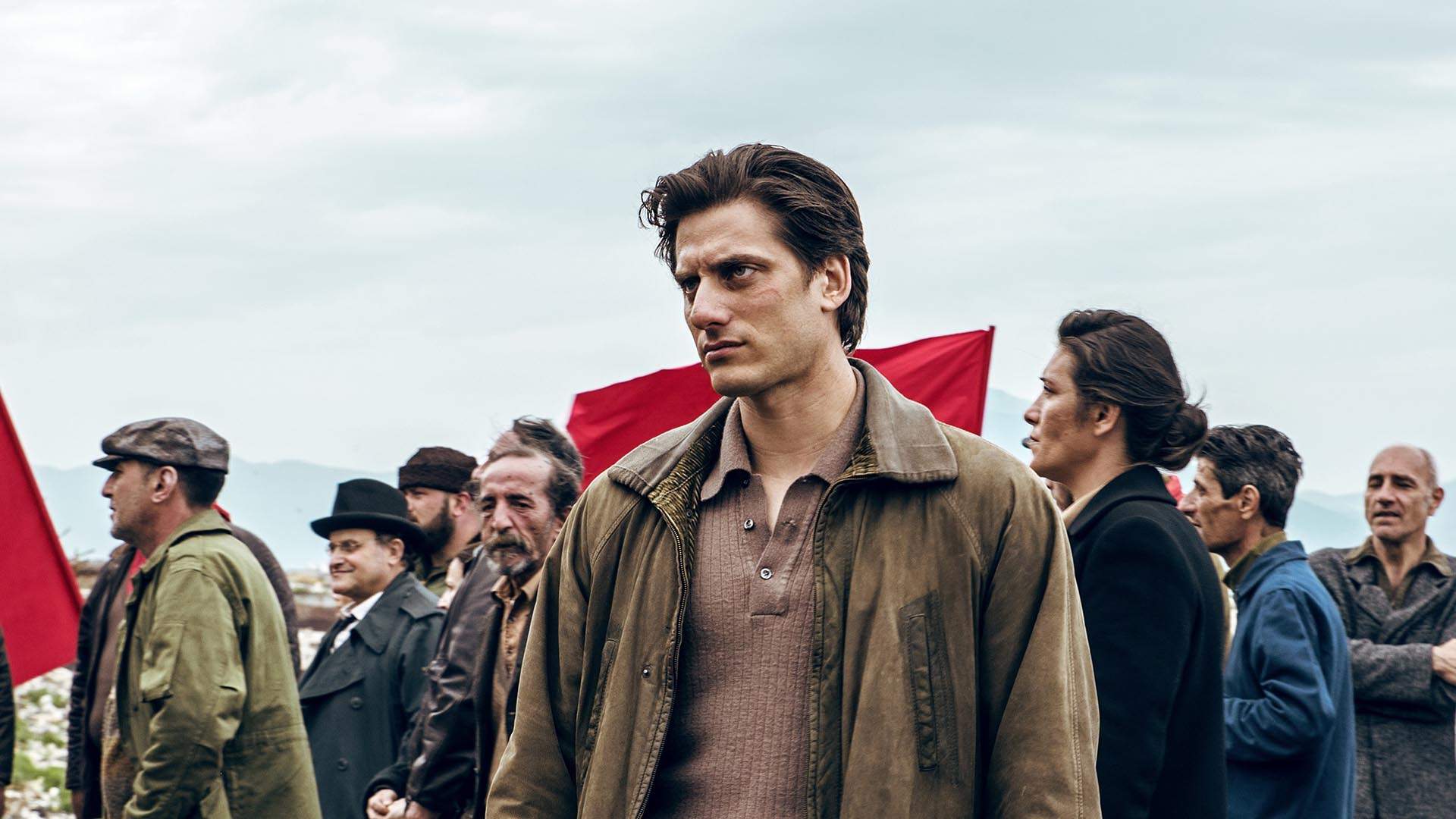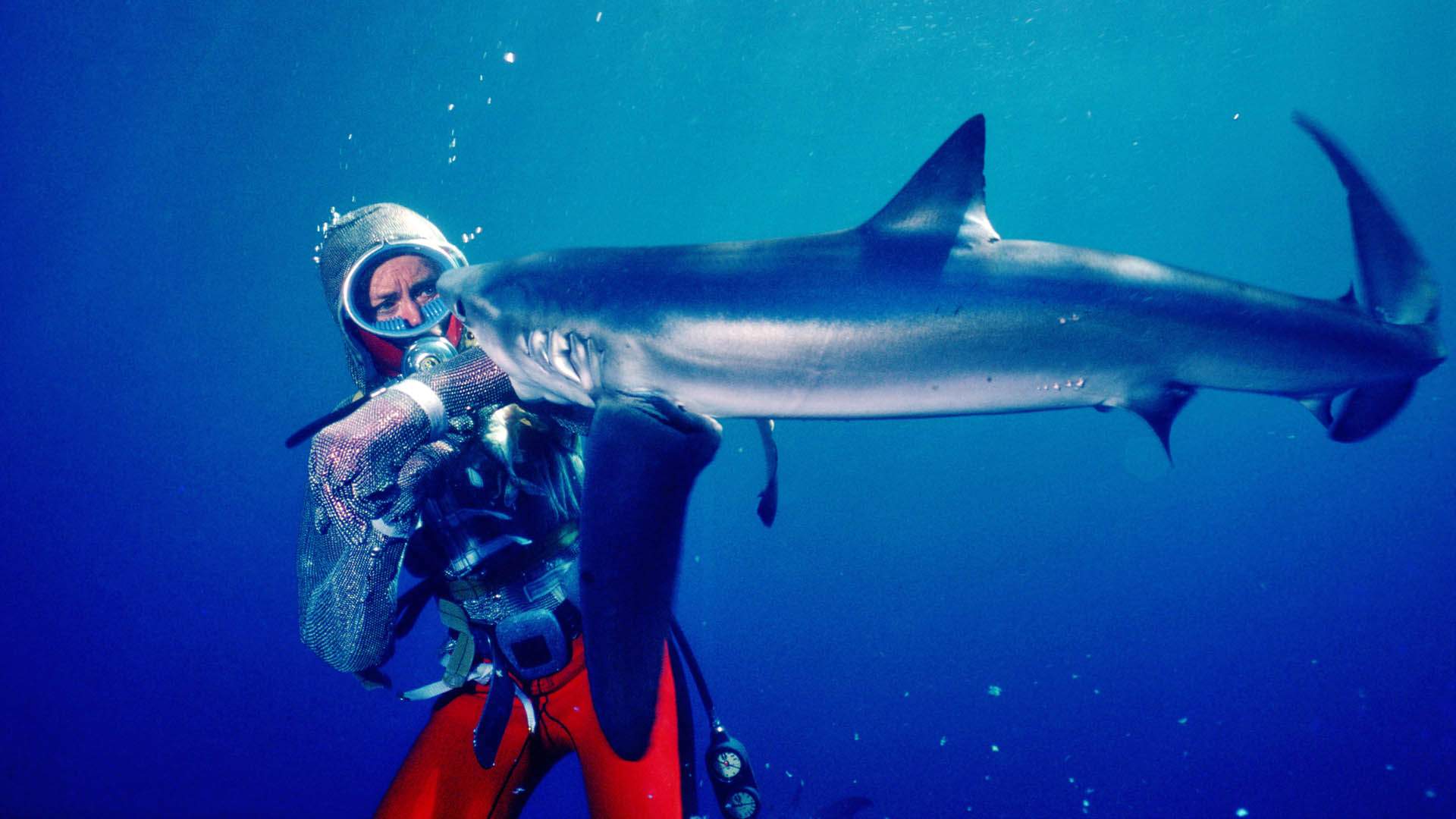Twelve New Movies You Can Watch in July That Have Been Fast-Tracked From Cinemas to Streaming
Including a vibrant Lin-Manuel Miranda musical, a long-awaited horror sequel and a superhero spectacle.
Under normal circumstances, when a new-release movie starts playing in cinemas, audiences can't watch it on streaming, video on demand, DVD or blu-ray for a few months. But with the pandemic forcing film industry to make quite a few changes over the past year — widespread movie theatre closures will do that — that's no longer always the case.
Maybe you're in lockdown. Perhaps you haven't had time to make it to your local cinema lately. Given the hefty amount of films now releasing each week, maybe you missed something. Film distributors have been fast-tracking some of their new releases from cinemas to streaming recently — movies that might still be playing in theatres in some parts of the country, too. In preparation for your next couch session, here's 12 you can watch right now at home.

IN THE HEIGHTS
Lin-Manuel Miranda isn't the first lyricist to pen tunes so catchy that they get stuck in your head for years (yes, years), but his rhythmic tracks and thoughtful lines always stand out. Miranda's songs are melodic and snappy, as anyone who has seen Hamilton onstage or via streaming definitely knows. The multi-talented songwriter's lyrics also pinball around your brain because they resonate with such feeling — and because they're usually about something substantial. The musical that made his name before his date with US history, In the Heights echoes with affection for its eponymous Latinx New York neighbourhood. Now that it's reverberating through cinemas, its sentiments about community, culture, facing change and fighting prejudice all seem stronger, too. To watch the film's characters sing about their daily lives and deepest dreams in Washington Heights is to understand what it's like to feel as if you truly belong in your patch of the city, to navigate your everyday routine with high hopes shining in your heart, and to weather every blow that tries to take that turf and those wishes away. That's what great show tunes do, whisking the audience off on both a narrative and an emotional journey. Miranda sets his words to hip hop beats, but make no mistake: he writes barnstorming songs that are just as rousing and moving, and that've earned their place among the very best stage and screen ditties as a result.
Watching In the Heights, it's hard not to think about all those stirring tracks that've graced previous musicals. That isn't a sign of derivation here, though. Directing with dazzling flair and a joyous mood, Crazy Rich Asians filmmaker Jon M Chu nods to cinema's lengthy love affair with musicals in all the right ways. His song-and-dance numbers are clearly influenced by fellow filmic fare, and yet they recall their predecessors only because they slide in so seamlessly alongside them. Take his staging of the tune '96000', for instance. It's about winning the lottery, after word filters around that bodega owner Usnavi (Anthony Ramos, a Hamilton alum) has sold a lucky ticket. Due to the sweltering summer heat, the whole neighbourhood is at the public pool, which is where Chu captures a colourful sea of performers expressing their feelings through exuberantly shot, staged and choreographed music and movement — and it's as touching and glorious as anything that's ever graced celluloid. Of course, $96,000 won't set anyone up for life, but it'd make an enormous difference to Usnavi, In the Heights' protagonist and narrator. It'd also help absolutely everyone he loves. As he explains long before anyone even hears about the winning ticket, or buys it, every Heights local has their own sueñitos — little dreams they're chasing, such as his determination to relocate to the Dominican Republic. And that's what this intoxicating, invigorating, impassioned and infectious captures with vibrant aplomb.
In the Heights is available to stream via Google Play, YouTube Movies, iTunes and Amazon Video. Read our full review.

A QUIET PLACE PART II
When every noise you make could send savage aliens stalking, slashing and slaughtering your way, it's the waiting that gets you. When you're watching a nerve-rattling horror film about that exact scenario, the same sentiment remains relevant. In A Quiet Place, the Abbott family went into survival mode after vicious creatures invaded, hunted down every sound and dispensed with anyone that crossed their path. For the characters in and viewers of the 2018 hit alike, the experience couldn't have screamed louder with anxiety and anticipation. Evelyn and Lee (Wild Mountain Thyme's Emily Blunt and Detroit's John Krasinski) and their children Regan (Millicent Simmonds, Wonderstruck), Marcus (Noah Jupe, The Undoing) and Beau (Cade Woodward, Avengers: Endgame) all silently bided their time simply trying to stay safe and alive, but their continued existence lingered under a gut-wrenching shadow. The critters were still out there, listening for even a whisper. It was a matter of when, not if, they'd discern the slightest of noises and strike again. That type of waiting drips with tension and suspense, and also with the kind of inevitability that hovers over everyone alive. A certain bleak end awaits us all, a truth we routinely attempt to ignore; however, neither the Abbotts nor A Quiet Place's audience were allowed to forget that grim fact for even a moment.
Initially slated to arrive in cinemas two years later, then delayed by the pandemic for 14 months, sequel A Quiet Place Part II isn't done with waiting. Written and directed once again by Krasinski, the film doesn't shy away from the stress and existential distress that marking time can bring, but it also tasks its characters with actively confronting life's inevitabilities. After an intense and impressive tone-setting opening flashback to the first day of the alien attack, when the Abbotts' sleepy hometown learns of humanity's new threat in the cruellest fashion, the storyline picks up where its predecessor left off. It's day 474 — the earlier film spent most of its duration around day 472 — and Evelyn, Regan, Marcus and the family's newborn are grappling with their losses. That said, they're also keenly aware that they can't stay in their Appalachian farmhouse any longer. After spotting smoke on the horizon and setting off in that direction, they reconnect with Emmett (Cillian Murphy, Peaky Blinders), an old friend who has been through his own traumas. Evelyn sees safety in numbers, but he's reluctant to help. Then Regan hears a looping radio transmission playing 'Beyond the Sea' and decides to track down its source — and a film that's less thrilling, potent and unsettling than its predecessor eventuates.
A Quiet Place Part II is available to stream via Google Play, YouTube Movies, iTunes and Amazon Video. Read our full review.

BLACK WIDOW
Closure is a beautiful thing. It's also not something that a 24-film-and-growing franchise tends to serve up often. Since 2008, the Marvel Cinematic Universe has operated with the opposite aim — extending and expanding the series at every turn, delivering episodic instalments that keep viewers hanging for the next flick, and endeavouring to ensure that the superhero saga blasts onwards forever. But it's hard to tick those boxes when you're making a movie about a character whose fate is already known. Audiences have seen where Natasha Romanoff's (Scarlett Johansson, Marriage Story) story finishes thanks to Avengers: Endgame, so Black Widow doesn't need to lay the groundwork for more films to follow. It's inexcusable that it has taken so long for the assassin-turned-Avenger to get her own solo outing. It's indefensible that this is just the second Marvel feature to solely focus on a female figure, too. But, unlike the missed opportunity that was Captain Marvel, Black Widow gives its namesake a thrilling big-screen outing, in no small part because it needn't waste time setting up a Black Widow sequel. Instead, the pandemic-delayed movie spends its 143 minutes doing what more MCU flicks should: building character, focusing on relationships, fleshing out its chosen world and making every inch of its narrative feel lived-in. The end result feels like a self-contained film, rather than just one chapter in a never-ending tale — which gives it the space to confidently blend family dramas with espionage antics, and to do justice to both parts of that equation.
Sporting an impressive cast that also includes Florence Pugh (Little Women), David Harbour (Stranger Things) and Rachel Weisz (The Favourite), Black Widow begins in 1995, in small-town Ohio. Here, Harbour and Weisz play Alexei and Melina, parents to young Natasha (Ever Anderson, Resident Evil: The Final Chapter) and Yelena (Violet McGraw, Doctor Sleep), and the portrait of all-American domesticity — or that's the ruse, at least. The film doesn't revel in small-town life, neighbourhood playtimes, 'American Pie' sing-alongs and an existence that could've been ripped from The Americans for too long, however, with the quartet soon en route back to Russia via Cuba at shady puppetmaster Dreykov's (Ray Winstone, Cats) beckoning. When the action then jumps forward to 2016, and to the aftermath of that year's Captain America: Civil War, Natasha hasn't seen her faux family for decades. On the run from the authorities, she isn't palling around with the Avengers, either, with the superheroes all going their separate ways. Then the adult Yelena (Pugh) reaches out, because she too has fled her own powers-that-be: Dreykov, the fellow all-female hit squad she's been part of for the last 21 years, and the mind-control techniques that've kept her compliant and killing. There's an unmistakable air of Bourne and Bond to Black Widow from there, but this deftly satisfying flick doesn't trade the MCU's blueprints for other franchises' templates. With Australian filmmaker Cate Shortland (Somersault, Lore and Berlin Syndrome) in the director's chair, this welcome addition to the franchise spins a thoughtfully weighty story about women trapped at the mercy of others and fighting to regain their agency.
Black Widow is available to stream via Disney+ with Premium Access. Read our full review.

MY NAME IS GULPILIL
Lengthy is the list of Australian actors who've started their careers on home soil, then boosted their fame, acclaim and fortunes by heading abroad. Some have won Oscars. Others are global household names. One plays a pigtailed comic book villain in a big film franchise, while another dons a cape and wields a hammer in a competing blockbuster saga. David Gulpilil doesn't earn any of the above descriptions, and he isn't destined to. It wouldn't interest him, anyway. His is the face of Australian cinema, though, and has been for half a century. Since first gracing the silver screen in Nicolas Roeg's Walkabout, the Yolŋu man has gifted his infectious smile and the irrepressible glint in his eye to many of the nation's most important movies. Indeed, to peruse his filmography is to revel in Aussie cinema history. On his resume, 70s classics such as Mad Dog Morgan and The Last Wave sit alongside everything from Crocodile Dundee and Rabbit-Proof Fence to Australia, Goldstone and Cargo — as well as parts in both the first 1976 film adaptation of Storm Boy and its 2019 remake.
The latest film to benefit from the Indigenous talent's presence: My Name Is Gulpilil. It might just be the last do to so, however. That sad truth has been baked into the documentary ever since its subject asked director Molly Reynolds and producer Rolf de Heer — two filmmakers that Gulpilil has collaborated with before, including on Another Country, Charlie's Country, Ten Canoes and The Tracker — to make something with him after he was diagnosed with stage-four lung cancer. That was back in 2017, when he was given just six months to live. Gulpilil has been proving that diagnosis wrong ever since. Cue this heartfelt portrait of an Australian icon like no other, which celebrates a star who'll never be matched, reminds viewers exactly why that's the case, but is never a mere easy, glossy tribute. Anyone could've combined snippets of Gulpilil's movies with talking heads singing his praises. In the future, someone probably will. But Reynolds is interested in truly spending time with Gulpilil, hearing his tale in his own words, and painting as complete a portrait of his life, work, dreams, regrets, spirit, culture and impact as possible.
My Name Is Gulpilil is available to stream via ABC iView. Read our full review.

VALERIE TAYLOR: PLAYING WITH SHARKS
Steven Spielberg directed Jaws, the 1975 horror film that had everyone wondering if it was safe to go back into the water — and the movie that became Hollywood's first blockbuster, too — but he didn't shoot its underwater shark sequences. That task fell to Australian spearfisher and diver-turned-oceanographer and filmmaker Valerie Taylor and her husband Ron, who did so off the coast of Port Lincoln in South Australia. If it weren't for their efforts, the film mightn't have become the popular culture behemoth it is. When one of the animals the Taylors were filming lashed out at a metal cage that had held a stuntman mere moments before, the pair captured one of the picture's most nerve-rattling scenes by accident, in fact. And, before Peter Benchley's novel of the same name was even published, the duo was sent a copy of the book and asked if it would make a good feature (the answer: yes). Helping to make Jaws the phenomenon it is ranks among Valerie's many achievements, alongside surviving polio as a child, her scuba and spearfishing prowess, breaking boundaries by excelling in male-dominated fields in 60s, and the conservation activism that has drawn much of her focus in her later years. Linked to the latter, and also a feat that many can't manage: her willingness to confront her missteps and then do better.
The apprehension that many folks feel when they're about to splash in the ocean? The deep-seated fear and even hatred of sharks, too? That's what Valerie regrets. Thanks to Jaws, being afraid of sharks is as natural to most people as breathing, and Valerie has spent decades wishing otherwise. That's the tale that Valerie Taylor: Playing with Sharks tells as it steps through her life and career. Taking a standard birth-to-now approach, the documentary has ample time for many of the aforementioned highlights, with Valerie herself either offering her memories via narration or popping up to talk viewers through her exploits. But two things linger above all else in this entertaining, engaging and insightful doco. Firstly, filmmaker Sally Aitken (David Stratton: A Cinematic Life) fills her feature with stunning archival footage that makes for astonishing and affecting viewing (Ron Taylor is credited first among the feature's five cinematographers). Secondly, this powerful film dives into the work that Valerie has spearheaded to try to redress the world's fright-driven perception of sharks. Like last year's David Attenborough: A Life on Our Planet, 2017's Jane Goodall documentary Jane and underwhelming 2021 Oscar-winner My Octopus Teacher, this is a movie about being profoundly changed by the natural world and all of its splendour.
Valerie Taylor: Playing with Sharks is available to stream via Disney+. Read our full review.

CRUELLA
A killer dress, a statement jacket, a devastating head-to-toe ensemble: if they truly match their descriptions, they stand the test of time. Set in 70s London as punk takes over the aesthetic, live-action 101 Dalmatians prequel Cruella is full of such outfits — plus a white-and-black fur coat that's suspected of being made from slaughtered dogs. If the film itself was a fashion item, though, it'd be a knockoff. It'd be a piece that appears fabulous from afar, but can't hide its seams. That's hardly surprising given this origin tale stitches together pieces from The Devil Wears Prada, The Favourite, Superman, Star Wars and Dickens, and doesn't give two yaps if anyone notices. The Emmas — Stone, playing the dalmatian-hating future villain; Thompson, doing her best Miranda Priestly impression as a ruthless designer — have a ball. Oscar-winning Mad Max: Fury Road costume designer Jenny Beavan is chief among the movie's MVPs. But for a film placed amid the punk-rock revolution, it's happy to merely look the part, not live and breathe it. And, in aiming to explain away its anti-heroine's wicked ways, it's really not sure what it wants to say about her.
Before she becomes the puppy-skinning fashionista that remains among Glenn Close's best-known roles, and before she's both a wannabe designer and the revenge-seeking talk of the town played by Stone (Zombieland: Double Tap), Cruella is actually 12-year-old girl Estella (Tipper Seifert-Cleveland, Game of Thrones). In this intellectual property-extending exercise from I, Tonya director Craig Gillespie, she sports two-toned hair and a cruel that streak her mother (Emily Beecham, Little Joe) tries to tame with kindness — and she's also a target for bullies, but has the gumption to handle them. Then tragedy strikes, an orphan is born, loss haunts her every move and, after falling in with a couple of likeable London thieves, those black-and-white locks get a scarlet dye job. By the time that Estella is in her twenties, she's well-versed in pulling quick heists with Jasper (Joel Fry, Yesterday) and Horace (Paul Walter Hauser, Songbird). She loves sewing the costumes required more than anything else, however. After years spent dreaming of knockout gowns, upmarket department stores and threads made by the Baroness (Thompson, Last Christmas), she eventually gets her chance — for fashion domination, as well as vengeance.
Cruella is available to stream via Disney+ with Premium Access, Google Play, YouTube Movies, iTunes and Amazon Video. Read our full review.

MARTIN EDEN
The last time that one of Jack London's books made the leap to cinema screens — just last year, in fact — it wasn't a pleasant viewing experience. Starring Harrison Ford and a CGI dog, The Call of the Wild forced viewers to watch its flesh-and-blood lead pal around with a needlessly anthropomorphised canine, to groan-inducingly cheesy results. Martin Eden is a much different book, so it could never get the same treatment. With his radiant imagery, masterful casting and bold alterations to the source material, writer/director Pietro Marcello (Lost and Beautiful) makes certain that no one will confuse this new London adaption for the last, however. The Italian filmmaker helms a compelling, complicated, ambitious and unforgettable film, and one that makes smart and even sensuous choices with a novel that first hit shelves 112 years ago. The titular character is still a struggling sailor who falls in love with a woman from a far more comfortable background than his. He still strives to overcome his working-class upbringing by teaching himself to become a writer. And, he still finds both success and scuffles springing from his new profession, with the joy of discovering his calling, reading everything he can and putting his fingers to the typewriter himself soon overshadowed by the trappings of fame, a festering disillusionment with the well-to-do and their snobbery, and a belief that ascribing worth by wealth is at the core of society's many problems.
As a book, Martin Eden might've initially reached readers back in 1909, but Marcello sees it as a timeless piece of literature. He bakes that perception into his stylistic choices, weaving in details from various different time periods — so viewers can't help but glean that this tale just keeps proving relevant, no matter the year or the state of the world. Working with cinematographers Alessandro Abate (Born in Casal Di Principe) and Francesco Di Giacomo (Stay Still), he helms an overwhelmingly and inescapably gorgeous-looking film, too. When Martin Eden is at its most heated thematically and ideologically, it almost feels disquieting that such blistering ideas are surrounded by such aesthetic splendour, although that juxtaposition is wholly by design. And, in his best flourish, he enlists the magnetic Luca Marinelli (The Old Guard) as his central character. In a performance that won him the Best Actor award at the 2019 Venice Film Festival, Marinelli shoulders the eponymous figure's hopes, dreams and burdens like he's lived them himself. He lends them his soulful stare as well. That expression bores its way off the screen, and eventually sees right through all of the temptations, treats and treasures that come Eden's way. Any movie would blossom in its presence; Martin Eden positively dazzles, all while sinking daggers into the lifetime of tumult weathered by its titular everyman.
Martin Eden is available to stream via Google Play, YouTube Movies and iTunes.

I BLAME SOCIETY
She's fired by her manager after he finally reads one of her scripts, then deems the topic of Israel "too political". When his assistant wrangles her a meeting with a couple of indie film producers in the aftermath, she's asked to lend her perspective to stories about strong female voices, breastfeeding in public, and either intersexuality or intersectionality — when it comes to the latter two, they aren't quite sure which. So, as I Blame Society gleefully posits in its savage takedown of the film industry today, it's little wonder that Gillian (writer/director Gillian Wallace Horvat) decides to follow up a leftfield idea. Three years earlier, some of her friends told her that she'd make a great murderer, a notion that she took as a compliment and has been fascinated with to an unhealthy degree ever since. Indeed, at the time, she went as far asking her pal Chase (co-writer Chase Williamson) if she could hypothetically walk through the process of killing his girlfriend. The request put a long-lasting pause on their friendship, to no one else's surprise. Now, as she resurrects the project, her editor boyfriend Keith (Keith Poulson, Her Smell) keeps reiterating that it's a terrible idea; however, with no other avenues forward, Gillian is committed to doing whatever she thinks she needs to to kickstart her career.
During a mid-film conversation, an increasingly exasperated Keith reminds Gillian that no "there is no movie that is worth hurting someone for". He's endeavouring to get her to agree, but "if it's a very bad person for a very good movie…" is her quick and firm reply. I Blame Society is equally direct. While Horvat plays a fictional character — and, the audience presumes, hasn't ever flirted with or committed murder in real life — she absolutely slaughters her chosen concept. Not every line or moment lands as intended, but this biting satire sticks a knife into every expectation saddled upon women in general and female filmmakers especially, then keeps twisting. The film's recurrent gags about likeability cleave so close to the truth, they virtually draw blood. Its aforementioned parody of supposed allyship among powerbrokers and gatekeepers is similarly cutting and astute. In their canny script, Horvat and Williamson find ample time to poke fun of a plethora of industry cliches and microaggressions, the treatment of marginalised voices both within filmmaking and in broader society, and even the current true-crime obsession, all without ever overloading the 84-minute movie. And, on-screen as well, Horvat is a savvy delight. She wants viewers to both cringe and nod, and everything about her performance and her feature directorial debut earns that response.
I Blame Society is available to stream via Google Play, YouTube Movies and iTunes.

A FAMILY
Just five letters are needed to turn A Family's title into the name of one of popular culture's most famous clans. The Addams crew aren't the subject of this Australian-produced, Ukraine-shot blend of comedy and drama, but it does delve into the creepy, kooky and mysterious anyway. The feature debut of director Jayden Stevens — who co-wrote the script with his cinematographer Tom Swinburn (Free of Thought) — the absurdist gem spends time with the stern-faced Emerson (first-timer Pavlo Lehenkyi). With none of his family around for unexplained reasons, he pays other Kiev locals to play their parts, staging dinners, Christmas parties and everyday occasions. They eat, chat and do normal family things, all for Emerson's camera. His actors (including Maksym Derbenyov as his brother and Larysa Hraminska as his mother) all need to stick to his script, though, or he'll offer them a surly reprimand. Olga (Liudmyla Zamidra), who has been cast as his sister, struggles the most with her role. She's also the member of this little faux family that Emerson is particularly drawn to. Her own home life with her mother Christina (Tetiana Kosianchuk) is far from rosy, with the pair suffering from her dad's absence, so eventually Olga decides that Emerson's role-play game might work there as well.
A Family is a film of patient and precise frames, awkwardly amusing moments, and bitingly accurate insights into the ties that bind — whether of blood or otherwise. It's a movie that recognises the transactional and performative nature of many of life's exchanges, too, and ponders how much is real and fake in both big and seemingly inconsequential instances. To perfect all of the above, Stevens walks in Yorgos Lanthimos (The Lobster, The Killing of a Sacred Deer, The Favourite), Aki Kaurismäki (Le Havre, The Other Side of Hope) and even the usually inimitable David Lynch's shoes. His feature is austere, deadpan and surreal all at once, and smart, amusing and savage at the same time as well. Indeed, if a bigger-name filmmaker had made this purposefully and probingly off-kilter picture, it would've likely proven a film festival darling around the globe. A Family did start its big-screen run at a fest, at the Melbourne International Film Festival back in 2019. Now reaching Australian cinemas after a year that's seen everyone either spend more time with or feel more physical distance from their nearest and dearest, it feels doubly potent. Every lingering image shot by Swinburn — and all of the pitch-perfect performances that he captures — speak loudly to the cycle of yearning and disconnection that comes with being alive, and that never stops being put under a microscope.
A Family is available to stream via iTunes.

THE CONJURING: THE DEVIL MADE ME DO IT
Starting in 2013 with The Conjuring, expanding with 2014's Annabelle, and also including The Conjuring 2, both terrible and much better sequels to Annabelle, the dismal The Nun and the formulaic The Curse of the Weeping Woman, The Conjuring Universe now spans eight evil-fighting flicks — and they're all as straightforward as it gets when it comes to battling the nefarious. Circling around real-life paranormal investigators Ed and Lorraine Warren, the franchise posits that the supernatural exists, darkness preys upon the innocent and its central couple usually has the tools to combat everything untoward. That template remains firmly in place in The Conjuring: The Devil Made Me Do It. With director Michael Chaves (The Curse of the Weeping Woman) and screenwriter David Leslie Johnson-McGoldrick (Aquaman) doing the honours — taking their cues from James Wan, the Australian Saw and Insidious co-creator who helmed the first two Conjuring flicks — it once again serves up the usual bumps, jumps and scares that have haunted this franchise since day one. That said, the third Conjuring flick within the broader Conjuring realm does attempt a few changes. Rather than getting creeped out by haunted houses, it gets spooked by a kid and then a teenager who are both possessed. True to form, bone-shakingly horrific things can't simply occur without some kind of excuse and entity at play.
The Warrens (Patrick Wilson, Aquaman, and Vera Farmiga, Godzilla: King of the Monsters) are first tasked with saving eight-year-old David Glatzel (Julian Hilliard, WandaVision) from a demon after his family moves to stereotypically sleepy Brookfield, Connecticut. Their efforts seem successful, even if Ed has a heart attack mid-exorcism, but the evil force they're fighting has really just jumped ship. Arne Johnson (Ruairi O'Connor, The Spanish Princess), the boyfriend of David's sister Debbie (Sarah Catherine Hook, NOS4A2), is quickly besieged by strange occurrences. He's soon also covered in blood after stabbing his landlord to Blondie's 'Call Me'. The death penalty beckons; however, the Warrens convince Arne's lawyer to plead not guilty by reason of demonic possession — the first time that ever happened in the US — and then commit to unearthing whatever paranormal details they can to save his life. The trailer for The Devil Made Me Do It teases legal thrills, but in a bait-and-switch way, because this film is barely concerned with Arne's court case. The true tale, which was previously dramatised in a 1983 TV movie starring Kevin Bacon, merely provides an easy setup for souped-up demonic antics and a routine, happily by-the-numbers, never remotely terrifying threequel. Indeed, the fact that more flicks will undoubtably still follow is the scariest thing about the film.
The Conjuring: The Devil Made Me Do It is available to stream via Google Play, YouTube Movies, iTunes and Amazon Video. Read our full review.

THE HITMAN'S WIFE'S BODYGUARD
Someone involved with The Hitman's Wife's Bodyguard must really love paperwork; that's the only reason anyone could've given its script the go-ahead. Perhaps Australian filmmaker Patrick Hughes, who also directed 2017's The Hitman's Bodyguard, likes nothing more than keeping his documents in order. Maybe returning screenwriter Tom O'Connor (The Courier) falls into that category, or his debuting co-scribes Phillip and Brandon Murphy — they all made the subject the focus of their screenplay, after all. Whoever fits the bill, their attempt to force audiences to care about bodyguard licensing falls flat. So does the misguided idea that the certification someone might need to unleash their inner Kevin Costner would ever fuel an entire movie. Instead, what was already a needless sequel to a terrible action-comedy becomes even more of a dull and pointless slog, with this by-the-numbers follow-up showing zero signs that anyone spent more than a few seconds contemplating the story. A significant plot point here: that Michael Bryce (Ryan Reynolds, The Croods: A New Age) has lost his official tick of approval. He's no longer triple A-rated after a mishap in the line of duty, and he isn't coping well. To be fair, no one watching The Hitman's Wife's Bodyguard will handle that news swimmingly either, but only because they're made to hear about it over and over, all as Bryce rekindles his begrudging association with assassin Darius Kincaid (Samuel L Jackson, Spiral: From the Book of Saw) and the latter's con artist wife Sonia (Salma Hayek, Bliss).
When Darius gets snatched up by nefarious folks during his belated honeymoon with Sonia, only Bryce can help — or so says the angry Mrs Kincaid. She interrupts the latter's vacation with swearing, shouting and shootouts, because that's the kind of feisty Mexican wife that Hayek plays. From there, Reynolds primarily complains, Hayek sticks with stereotypes and Jackson attempts to exude his usual brand of couldn't-care-less cool; however, even more than in Spiral: From the Book of Saw, he's on autopilot. As also seen in Jackson's last big-screen appearance, The Hitman's Wife's Bodyguard insists on reminding its audience about its stars' better movies. You don't cast both Hayek and Antonio Banderas (who plays a European tycoon plotting the world's demise) if you don't want to bring Desperado and Once Upon a Time in Mexico to mind (and Frida and even Spy Kids 3, too). Thinking about the pair's shared past highlights is far more enjoyable than enduring their current collaboration, unsurprisingly. Making fun of accents is considered the height of comedy here, women can only be hot-headed nags and manchild daddy issues get almost as much love as paperwork. The jokes aren't just scattershot; they're non-existent. The messy, incoherent and over-edited action scenes fare just as badly. None of the above is likely to save us from a third movie, though, which'll probably be called The Hitman's Wife's Baby's Bodyguard's Lost Birth Certificate.
The Hitman's Wife's Bodyguard is available to stream via Google Play, YouTube Movies, iTunes and Amazon Video.

FATALE
Only 14 women have ever won more than one Academy Award for Best Actress, and Hilary Swank is one of them. When she earned the Oscars double for 1999's Boys Don't Cry and 2004's Million Dollar Baby, she beat both Meryl Streep and now three-time recipient Frances McDormand to the feat — but her career hasn't brought the coveted accolade her way again since. Fatale isn't going to change that recent trend. It hasn't earned Swank a Razzie either, but she could've easily been in the running. Playing a Los Angeles cop who has a one-night stand in Las Vegas with an ex-college basketball star turned high-profile player manager, then starts stalking her way through his life while also trying to intimidate her politician ex-husband into giving her back access to her young daughter, she has one mode here: stern-faced yet unbalanced. Even when her character, Detective Valerie Quinlan, is first seen flirting, Swank plays her as if something isn't quite right. That's accurate, plot-wise, but it robs Fatale of any semblance of tension it might've possessed. The film is meant to be an adultery-focused thriller in the Fatal Attraction mould — with even its title blatantly nodding that way — but it just ends up recycling tired, simplistic, overused cliches about unhinged women into a monotonous and unnecessarily convoluted package.
Valerie and Derrick (Michael Ealy, Westworld) hit it off at a Vegas bar, then get physical; however, the next morning, he heads home to his wife Tracie (Damaris Lewis, BlacKkKlansman), who he actually suspects of being unfaithful herself. Before Derrick can meaningfully process either his infidelity or his fears about his crumbling marriage, his swanky home is broken into one night — and, because director Deon Taylor (Black and Blue) and screenwriter David Loughery (The Intruder) are content to hit every expected beat there is (and because they've seen every 80s and 90s erotic thriller ever made, too), Valerie is the investigating officer. Despite being woefully predictable from the outset, Fatale doesn't dare have fun with its cookie-cutter narrative. It doesn't evoke thrills, bring anything more than surface style or prove particularly sexy, and it never gets its audience invested in its obvious twists, one-note characters or rote dialogue. And, although having its badge-toting stalker use excessive force and exploit her power to target a person of colour could've been a choice that said something about America's current reckoning with law enforcement, race and police brutality, Fatale doesn't even contemplate anything other than clunky formula.
Fatale is available to stream via Google Play, YouTube Movies, iTunes and Amazon Video.

Looking for more at-home viewing options? Check out our lists of movies fast-tracked from cinemas to streaming back in May and June. You can also take a look at our monthly streaming recommendations across new straight-to-digital films and TV shows.
